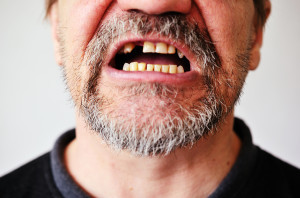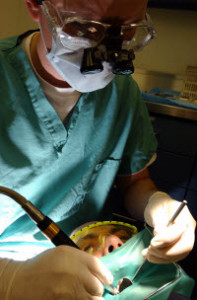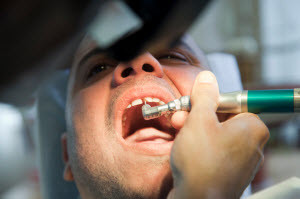 Loose teeth might be normal for a child, but can be a cause for concern for an adult. If one of your adult teeth feels loose, you might notice that it’s possible to wiggle it. You may also find a loose tooth by touching it while engaging in normal activities such as eating or drinking.
Loose teeth might be normal for a child, but can be a cause for concern for an adult. If one of your adult teeth feels loose, you might notice that it’s possible to wiggle it. You may also find a loose tooth by touching it while engaging in normal activities such as eating or drinking.
What Could Cause an Adult Tooth to Become Loose?
Adult teeth can become loose due to several different factors, which include but are not limited to:
– Injury/Trauma: Your adult teeth can become loose if an injury to your mouth causes damage to the root of the tooth as well as the surrounding gums.
– Teeth Grinding (Bruxism): Clenching or grinding puts pressure on your teeth, which makes them loose over time.
– Gum Disease (Periodontitis): It’s a severe gum infection that causes gum recession. If left untreated, periodontitis can cause loose teeth.
– Pregnancy: The hormonal imbalances experienced during pregnancy may affect the bones and ligaments in the mouth that hold teeth causing them to loosen.
– Osteoporosis (Weakening of Bones): If you have osteoporosis, your jawbone may lose its density causing teeth to become loose.
– Diabetes: If your diabetes isn’t under control, it can aggravate your gum disease, which in turn can cause loosening of teeth.
– Medication: Calcium is necessary for strong and healthy bones and teeth, but certain medications can make it difficult for the body to absorb it. Prolonged intake of such medication can weaken and loosen your teeth.
What Can You Do While Waiting to See the Dentist?
If your tooth is very loose, fractured, chipped, knocked-out, or almost falling out, you have a dental emergency and you should see your dentist within the shortest time possible. To save your tooth, it needs to be out back in its socket within no more than 2 hours.
In the meantime, you should do the following:
- Avoid touching the root when picking the tooth up
- Rinse the tooth in a bowl of lukewarm water
- Replace the tooth in its socket facing the right way
- Press down on the tooth with your thumb until the crown is level with the adjacent tooth
- Bite down on a wad of cloth to stabilize the tooth until you’re seen by the dentist.
If you have a loose adult tooth, don’t panic. You can increase the odds of avoiding tooth loss or any further complications by seeking treatment immediately. Contact or schedule an appointment with a dentist if you think that you have a loose adult tooth and your smile will thank you.






